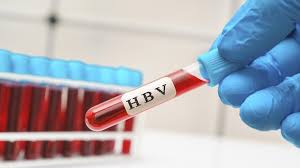World Liver Day: Hepatitis B is 50 to 100 Times More Infectious Than HIV
World Liver Day is observed on April 19 every year to raise awareness about liver-related diseases and promote liver health. The liver is a vital organ responsible for various functions, including detoxification, protein synthesis, and digestion. One of the major concerns affecting liver health worldwide is viral hepatitis, with Hepatitis B being a leading cause of liver disease and liver cancer.
Hepatitis B is a highly contagious liver infection caused by the Hepatitis B virus (HBV). The virus is transmitted through contact with the blood or body fluids of an infected person. This can happen through unprotected sexual contact, sharing needles or syringes, or from mother to child during childbirth. According to the World Health Organization (WHO), Hepatitis B is 50 to 100 times more infectious than HIV.
Hepatitis B can be acute or chronic. Acute Hepatitis B is a short-term illness that occurs within the first 6 months after exposure to the virus. Symptoms may include fever, fatigue, loss of appetite, nausea, vomiting, abdominal pain, dark urine, clay-colored bowel movements, joint pain, and yellowing of the skin and eyes (jaundice). Most adults with acute Hepatitis B recover fully, even if their symptoms are severe. However, a small percentage of people infected with HBV will develop chronic Hepatitis B, which can lead to serious liver problems, including cirrhosis and liver cancer.
Prevention is key in combating Hepatitis B. The most effective way to prevent Hepatitis B is through vaccination. Vaccination is recommended for all infants, children, and adolescents, as well as adults at risk of infection. In addition to vaccination, practicing safe sex, avoiding sharing needles or syringes, and ensuring proper sterilization of medical equipment can help prevent the spread of HBV.
Early diagnosis and treatment are crucial in managing Hepatitis B. If you think you may have been exposed to the virus or are experiencing symptoms of Hepatitis B, it is important to consult a healthcare provider for testing and evaluation. Treatment for chronic Hepatitis B may include antiviral medications and regular monitoring of liver function.
On this World Liver Day, let’s raise awareness about Hepatitis B and the importance of liver health. By taking preventive measures, getting vaccinated, and seeking timely medical care, we can protect ourselves and our loved ones from the serious consequences of Hepatitis B. Remember, a healthy liver is essential for overall well-being, so let’s take care of our liver and enjoy a healthy life.

